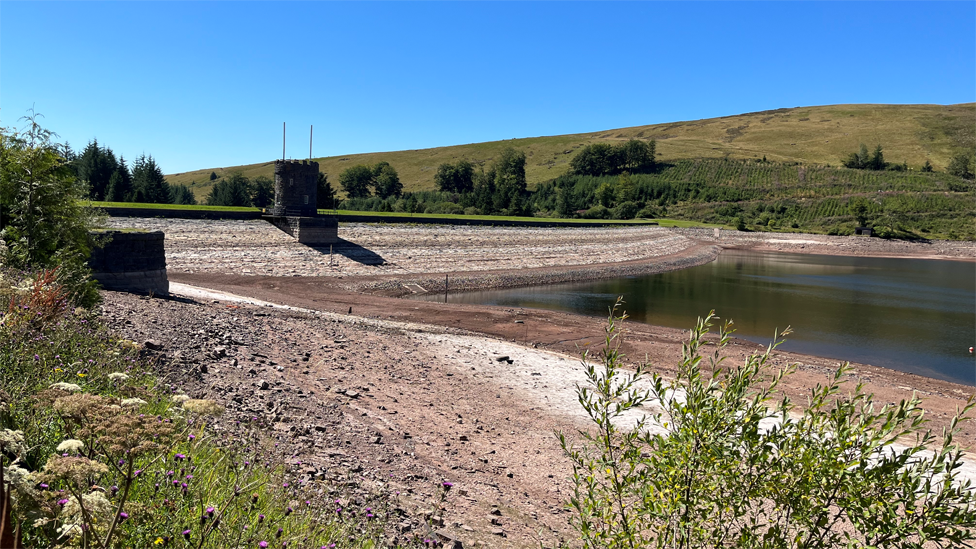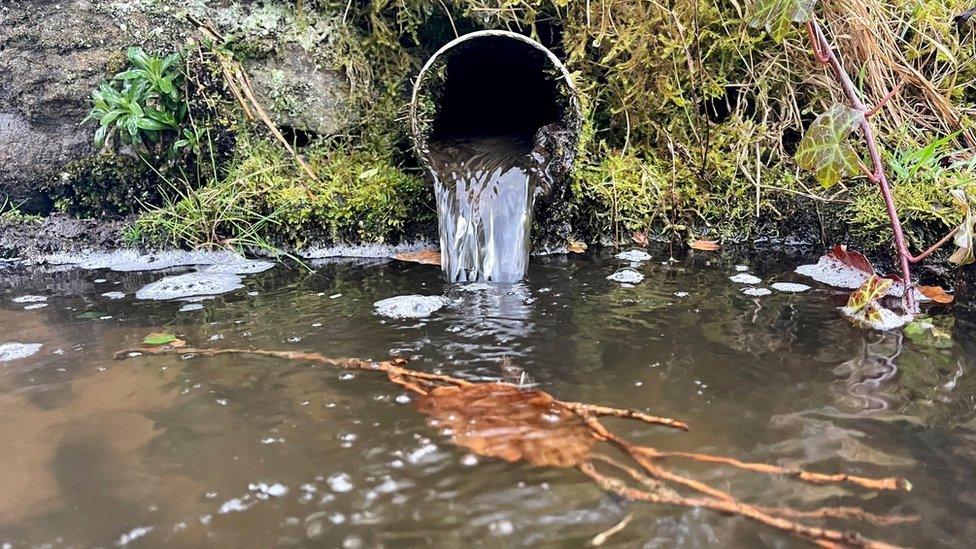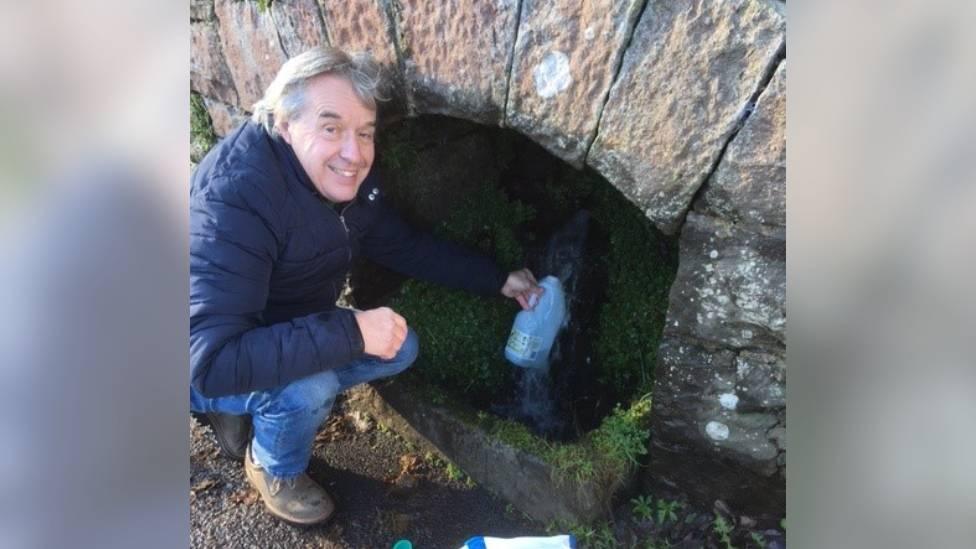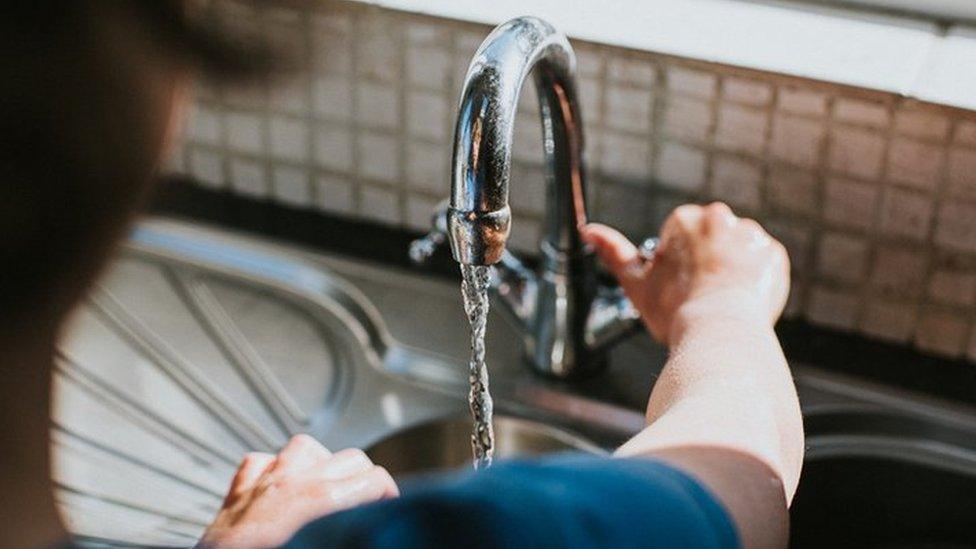Welsh Water: Extra water bill support for working households
- Published
- comments

An extra 50,000 households could get help with water bills
An extra 50,000 households could get help paying their water bills as Welsh Water extends its financial support scheme.
The company is investing £13m to help customers who would not normally qualify for lower water charges.
Households where at least one adult is in employment but who are struggling to afford the essentials will be eligible.
It comes as Welsh Water reported a loss for the year as costs for energy, chemicals and materials rose sharply.
The water company has three million customers, mostly in Wales but also in parts of England.

The heatwave of 2022 had an impact on water levels, such as at Llyn y Fan Fach in Bannau Brycheiniog
"With a lot of the working households we serve finding that bills are exceeding their income, our Cymuned fund could provide some much needed support," Welsh Water said in a statement.
Eligible households will receive a three-month "charge free" period, it said, which equates to a discount of around £100 - £120 based on an average annual bill.
"As ever, our advice to customers is to contact us the moment the bill becomes a worry so that we can look how we can provide support to alleviate this concern," the company added.
It said it recognised that the current cost-of-living crisis was very different to previous financial shocks.
"With unemployment levels at record lows, fewer customers are seeing their incomes reduced, but instead face rising household bills resulting in negative budgets.
"These customers are generally not served by typical financial assistance schemes and a different approach is needed," Welsh Water said.
The scheme was trialled in December 2022 in Rhondda Cynon Taff and Denbighshire with the aim of helping working households and will be available more widely across its supply area later in 2023.
In May, Welsh Water also said customers would get a £10 rebate on their bills after the company admitted mistakes in its data on leakages and water use.
The company posted an annual loss of £125m for the 2022/2023 financial year as a result of higher financial expenses than last year.
Monday's figures showed annual leakages had increased to 253.2 megalitres per day, compared to 240.3 megalitres per day the previous year.
One megalitre is equivalent to one million litres.
Industry regulator Ofwat is investigating the matter after an internal review found "governance and management oversight failures" in data reporting.

Reservoirs - including this one in Bannau Brycheiniog National Park- ran low during the heatwave in 2022
It said this was principally due to high inflation impacting its index-linked debt. Index-linked repayments rise in line with the Retail Prices Index measure of inflation which hit double-digit levels in the past year.
"We have not been immune to rapidly rising inflation, driven largely by the war in Ukraine, and have seen significant increases in costs for energy, chemicals and materials, as well as higher interest charges," chief financial officer Mike Davis said in a statement.
Climate change was having a significant effect on the business, he said.
Extreme weather events had a "material detrimental effect" on its operations, he said.
A prolonged period of hot, dry weather during the summer of 2022, the warmest since 1976, meant Welsh Water had to impose a temporary hosepipe ban in parts of Pembrokeshire and a small area of Carmarthenshire.
This led to extra spending on tankering - transporting water to areas in need in case of an emergency - and on efforts to minimise leakages.
During winter, Welsh Water had to compensate households after hundreds of homes were left without water after bad weather.
It also led to additional maintenance costs.
Related topics
- Published3 April 2023

- Published16 April 2023

- Published26 December 2022

- Published27 May 2023
